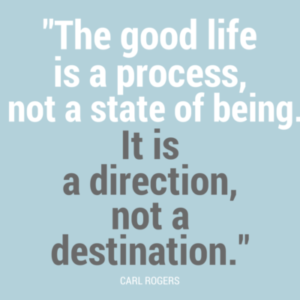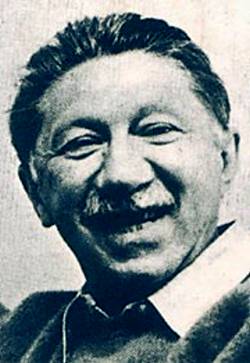16 Inspirational Carl Rogers Quotes
If you are looking for some inspiration and insight into the human experience, this selection of Carl Rogers quotes can give you something to reflect on. Carl Rogers was a humanistic psychologist who played a key role in the development of psychology. He developed an influential non-directive approach to psychotherapy known as client-centered therapy. His…

If you are looking for some inspiration and insight into the human experience, this selection of Carl Rogers quotes can give you something to reflect on.
Carl Rogers was a humanistic psychologist who played a key role in the development of psychology. He developed an influential non-directive approach to psychotherapy known as client-centered therapy. His philosophy centered strongly on the idea that people are basically good.
Carl Rogers’ Theory
Rogers believed that all people have what is known as an actualizing tendency. Essentially, we all strive to maximize our potential and be all that we can be. People who follow this actualizing tendency can become what he referred to as a fully-functioning person.
Some of the key characteristics of a fully functioning person are the tendency to be open to new experiences, an ability to change in response to new experiences, an ability to live in harmony with others, and unconditional self-regard.
Carl Rogers Quotes
Reading some quotes from his writing can help you get a better idea of his beliefs and theories:
Carl Rogers Quotes on Human Nature
“The good life is a process, not a state of being. It is a direction, not a destination.”
“When I look at the world, I’m pessimistic, but when I look at people I am optimistic.”
“The curious paradox is that when I accept myself just as I am, then I can change.” – From
On Becoming a Person: A Therapist’s View of Psychotherapy
“As no one else can know how we perceive, we are the best experts on ourselves.”
Carl Rogers Quotes on Creativity and Experience
“The very essence of the creative is its novelty, and hence we have no standard by which to judge it.” – From On Becoming a Person: A Therapist’s View of Psychotherapy
“People are just as wonderful as sunsets if you let them be. When I look at a sunset, I don’t find myself saying, ‘Soften the orange a bit on the right hand corner.’ I don’t try to control a sunset. I watch with awe as it unfolds.” – From A Way of Being
Carl Rogers Quotes on Authenticity
“In my relationships with persons I have found that it does not help, in the long run, to act as though I were something that I am not.” – From On Becoming a Person: A Therapist’s View of Psychotherapy
“I have learned that my total organismic sensing of a situation is more trustworthy than my intellect.” – From On Becoming a Person: A Therapist’s View of Psychotherapy
Carl Rogers Quotes on Growth and Change
“Growth occurs when individuals confront problems, struggle to master them, and through that struggle develop new aspects of their skills, capacities, views about life.”
“The only person who is educated is the one who has learned how to learn and change.”
Carl Rogers Quotes on Empathy and Understanding
“When the other person is hurting, confused, troubled, anxious, alienated, terrified; or when he or she is doubtful of self-worth, uncertain as to identity, then understanding is called for. The gentle and sensitive companionship of an empathic stance… provides illumination and healing. In such situations deep understanding is, I believe, the most precious gift one can give to another.”
“We think we listen, but very rarely do we listen with real understanding, true empathy. Yet listening, of this very special kind, is one of the most potent forces for change that I know.”
“It is astonishing how elements that seem insoluble become soluble when someone listens.”
Carl Rogers Quotes on Unconditional Positive Regard
Rogers also explained why people need unconditional positive regard to heal and thrive:
“When the other person is hurting, confused, troubled, anxious, alienated, terrified; or when he or she is doubtful of self-worth, uncertain as to identity, then understanding is called for. The gentle and sensitive companionship of an empathic stance… provides illumination and healing. In such situations, deep understanding is, I believe, the most precious gift one can give to another.”
“People only seriously consider change when they feel accepted for exactly who they are.”
“In my early professional years, I was asking the question: How can I treat, or cure, or change this person? Now I would phrase the question in this way: How can I provide a relationship which this person may use for his own personal growth?”





